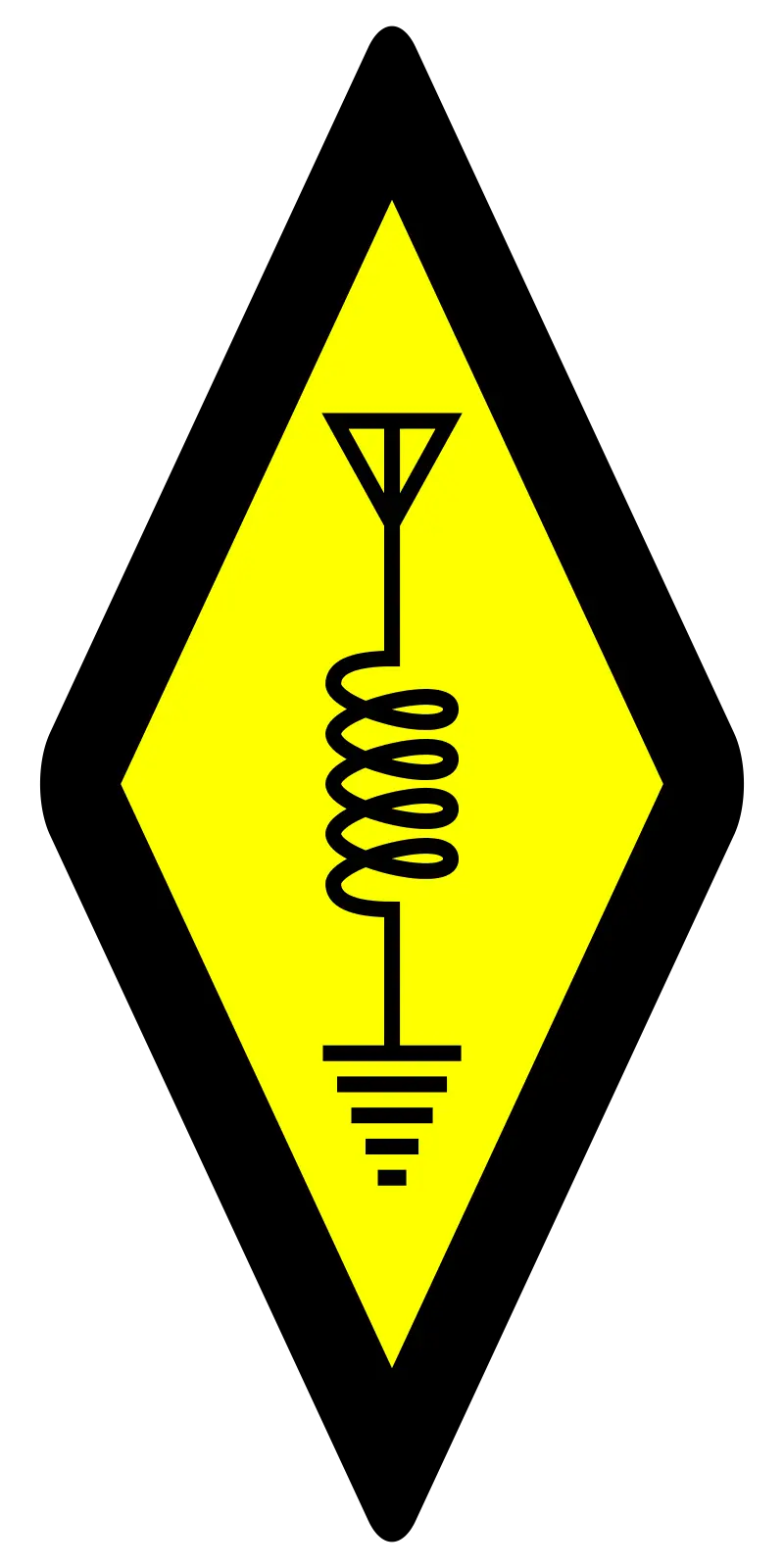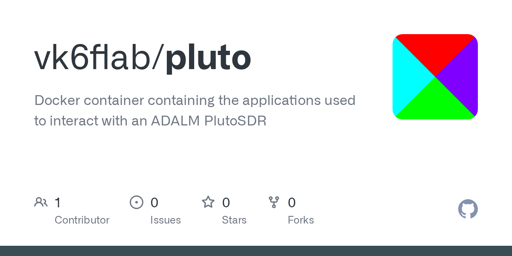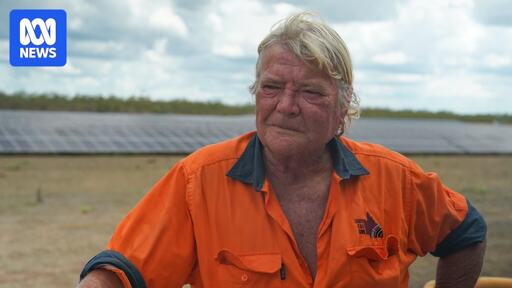Onno (VK6FLAB)
Anything and everything Amateur Radio and beyond. Heavily into Open Source and SDR, working on a multi band monitor and transmitter.
#geek #nerd #hamradio VK6FLAB #podcaster #australia #ITProfessional #voiceover #opentowork
- 180 Posts
- 2.58K Comments

 7·3 days ago
7·3 days agoI’m guessing that if you set your DNS to AdGuard a lot of this nonsense would go away.
Another alternative is to remove the internet access from your fridge.
More likely than not you’re confusing modifier keys.
On the Mac, the zoom is [Command] + [+].
In Linux it’s [Control] + [+]
This is pretty much true across the board. It’s sometimes non-obvious because wrappers like UTM try to “help”.
The alternative is to ssh into the VM and continue to use the MacOS shortcuts you’re used to.
Source: I’ve been using Linux on MacOS guests for a very long time.
It’s dinner time and why haven’t you fed me yet?
I’m clearly starving, why haven’t you fed me yet?
I’m not kidding around, why haven’t you fed me yet?
Nothing says “I don’t care about my data.” more than the examples in the screenshot.
What happens when two different files in different directions have the same name?
I suspect that there are other things going on there, speeds for this technology are generally fine, but you do need to figure out which sockets to use, since the best performance is when everything is on the same circuit.
Disclaimer: I’ve used this, installed it a couple of times and troubleshooting aside, it’s worked for me.

 6·8 days ago
6·8 days agoLikely generated spam content, it’s pretty rife. Clear your Watch History and it will likely stop recommending these to you.
Have a look at the modlog.

 1·10 days ago
1·10 days agoFair question.
What it boils down to is: Become part of the OSS community.
In my experience, there’s no other way, since the alternative is to be automatically part of the Microsoft (or Apple) community.
In other words, you need to make the investment into the implementation. As I’ve said elsewhere, license costs are insignificant.
The community is where you get help, where you find others with the same issues. You can pay the likes of Canonical and Redhat, but I’ve never been impressed by either.
Ultimately any solution requires support, just like any other tool. You just need to make it explicit, rather than assumed.
One thing that Microsoft does to ensure that you have support infrastructure is to continually break backwards compatibility in subtle ways that require you to open your wallet and pay for support.
OSS will likely run for years without adult supervision, but that doesn’t mean it can continue to work without requiring support from time to time. If you don’t prepare for this, you’re going to be very unhappy.
Kali ≠ Debian
I did not see an
apt-get updateIn my experience, unmet dependencies are unlikely to happen on a stable version where you only installed from the official repo.
The LZMA decompression errors point at a much more fundamental issue. I’m suspecting that the repository URLs point at non standard locations or downloads were interrupted, though I’m not sure exactly how, since AFAIK, apt checks the checksum.
If you must have something that’s not In your distro, do yourself a favour and install Docker and run your package inside there, much less chance of killing your system.
Source: I’ve been using Debian for over 25 years.

 1·10 days ago
1·10 days agoI’m talking about the reality of an organisation digging itself out of the hole created by projects such as described by OP.
I get the call from such organisations to help fix their issues and sometimes I can even help, more often than not it’s a time consuming effort (ie. expensive) to get to a point where the systems are in place to avoid the next catastrophe.
The reason that Microsoft keeps getting mind share and revenue is because there’s so much of that expertise around.
There’s loads of OSS professionals, myself included, but we’re a drop in the ocean by comparison.
In many cases an OSS deployment is the equivalent of “my nephew helped set this up” and it’s not helping the overall picture in the wider community.
If you’re going to deploy OSS, then you must consider the support implications before you start, anything else is unprofessional. License fees are insignificant by comparison.

 1·10 days ago
1·10 days agoHere’s three:
- A server with nobody supporting it for 13 years. It had a MySQL database with 743 columns. There was no documentation, served three organisations and hadn’t been backed up for at least 7 years.
- A server running a CMS for a dozen organisations that was running on failing hardware. No idea who built or didn’t support it.
- A server built by an employee 15 years ago, then supported by a “web company” who didn’t update it for 12 years, then “supported” by a Windows shop which was happy to charge the customer but hadn’t actually updated the server.
You’ll notice that I’m being deliberately vague.
All these share the exact scenario that the OP outlines. The organisations involved didn’t know that they were in deep trouble until well after the project instigator departed. No documentation, no updates, no training, handover, nothing beyond a set of credentials.
Er is er altijd wel eentje …
I think that you’re describing human evolution and missing the sheer scale at which people died learning what was safe to eat and what wasn’t.

 4·11 days ago
4·11 days agoI’ll add it to the list:
- AI is Assumed Intelligence.
- AI is autocorrect on steroids.
- AI is a Dunning-Kruger accelerator.
- AI is a classic case of Gell-Mann amnesia.

 33·11 days ago
33·11 days agoLast month, different country, same company:
https://apnews.com/article/australia-ai-errors-deloitte-ab54858680ffc4ae6555b31c8fb987f3

 23·12 days ago
23·12 days agoRight until your PostgreSQL server goes down and you can’t call your IT department and have to start hunting for a contractor, find a budget, get it signed off by management and HR, then on-board the new staff member, that is, after you advertised the position, did job interviews, after first filtering through the 700 … or two, applications, each plausibly generated by a ChatGPT session. Give it something like six months in a big organisation, less in a nimble one.
Does an “entrenched” anything sound “nimble” to you?
Have you told her this, just like you have here?

 155·12 days ago
155·12 days agoWhat you’re describing is a general experience with LLM, not limited to the C-level.
If an LLM sprouts rubbish you detect it because you have external knowledge, in other words, you’re the subject matter expert.
What makes you think that those same errors are not happening at the same rate outside your direct personal sphere of knowledge?
Now consider what this means for the people around you, including the C-level.
Repeat after me, AI is Assumed Intelligence and should not be considered anything more than autocorrect on steroids.

 78·12 days ago
78·12 days agoAnd that right there is why Windows is so entrenched.
If you want this for real, adoption of open source, then treat it properly. Consider the business impact of your absence, document the systems, train others, otherwise this is just another timebomb waiting to go off and with it any hope of weakening the Microsoft stranglehold on the company and its C-suite.
I’ve lost count of the number of such “projects” I’ve encountered in my professional career.
This is not doing anyone any favours, least of all yourself.

















That’s very interesting.
A little while ago we tested a bunch of radios for their spurious emissions. Until this post I was unaware that these radios were not tested by the FCC and that it appears that this is also true for other amateur transceivers.
For your information, here’s our report: https://github.com/vk6flab/rhp